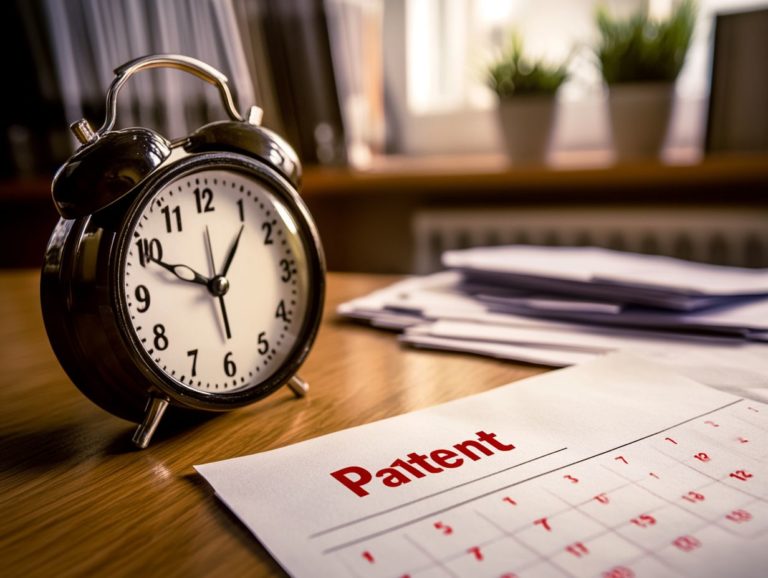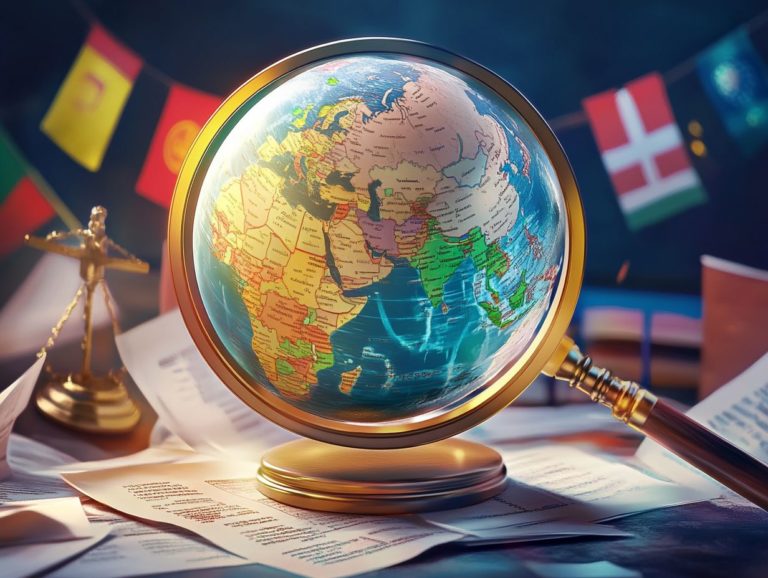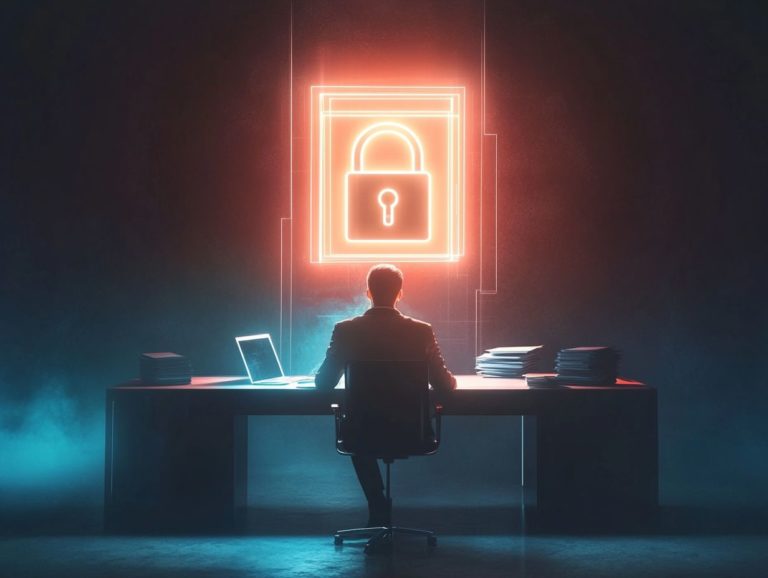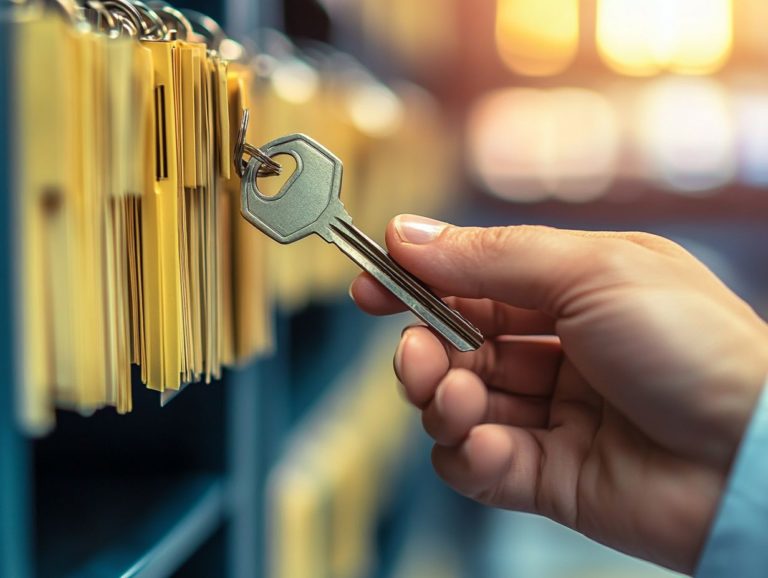What Are the Consequences of Copyright Infringement?
Copyright infringement carries serious ramifications. It extends beyond the original creator’s income and reputation. Additionally, it can result in significant legal consequences for the infringer.
This piece delves into the essence of copyright infringement. It offers clear examples and outlines potential civil and criminal penalties involved. It also examines effective strategies to prevent infringement and the necessary steps to take if faced with accusations.
Understanding copyright infringement is essential for every creator and consumer in today s digital world. Don’t wait learn how to protect your work now!
Contents
- Key Takeaways about Copyright Infringement Consequences:
- What is Copyright Infringement and Why It Matters?
- Legal Consequences of Copyright Infringement
- Impact on the Original Creator
- Preventing Copyright Infringement
- What to Do if You’re Accused of Copyright Infringement
- Frequently Asked Questions
- What are the consequences of copyright infringement?
- Can copyright infringement lead to jail time?
- Can I be sued for copyright infringement even if I didn’t make any money from it?
- What are some common examples of copyright infringement?
- What can I do if someone has infringed on my copyright?
- How can I avoid copyright infringement?
Key Takeaways about Copyright Infringement Consequences:
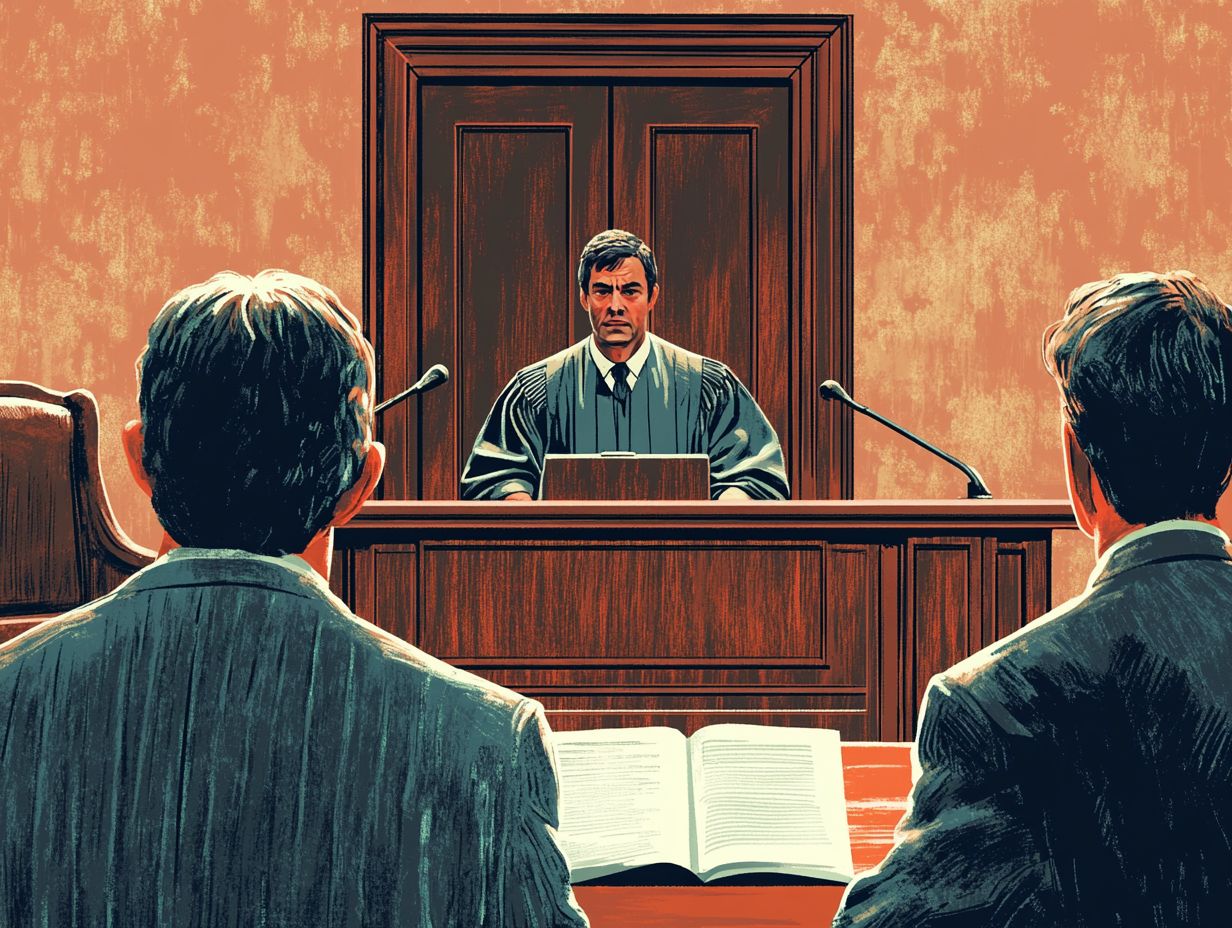
Copyright infringement can result in both civil and criminal penalties, ranging from fines to imprisonment.
Copyright infringement can harm creators financially and damage their reputation.
To prevent infringement, it s important to follow best practices and obtain proper permissions before using someone else’s copyrighted material.
What is Copyright Infringement and Why It Matters?
Copyright infringement happens when you or your organization uses a copyrighted work without obtaining permission from the copyright owner. This violates their exclusive rights as defined in copyright law. Unauthorized actions can include the distribution of artistic and literary works.
In today’s digital age, sharing protected materials without consent is easy. Institutions such as UA Little Rock and Purdue University stress the importance of understanding copyright laws. This knowledge helps prevent plagiarism and champions the protection of copyright.
Definition and Examples
Copyright infringement can take many forms. Unauthorized distribution of copyrighted material and acts of plagiarism are two key examples.
Consider this: sharing a copyrighted song or movie on a file-sharing platform without permission is unauthorized distribution. This could land you in serious legal trouble.
In the literary world, imagine a student submitting a research paper with quotes or ideas from various sources, but without proper citation. This scenario exemplifies plagiarism and undermines the integrity of academic work.
Digital creators also face challenges. Their content can be reposted on social media without consent, highlighting how easily copyright infringement can occur in our interconnected world.
These examples remind us of the importance of respecting intellectual property rights. Doing so allows for creative originality and honors the hard work of others.
Legal Consequences of Copyright Infringement
The legal ramifications of copyright infringement can be quite serious, including both civil and criminal penalties designed to deter unauthorized use. To understand more about the implications, you can review what are the consequences of IP theft.
As a copyright owner, you have the right to pursue damages for infringement. This can encompass actual damages as well as statutory damages, especially in instances of willful infringement.
The law provides a framework for imposing these penalties. It underscores the importance of adhering to copyright protection laws.
Civil and Criminal Penalties
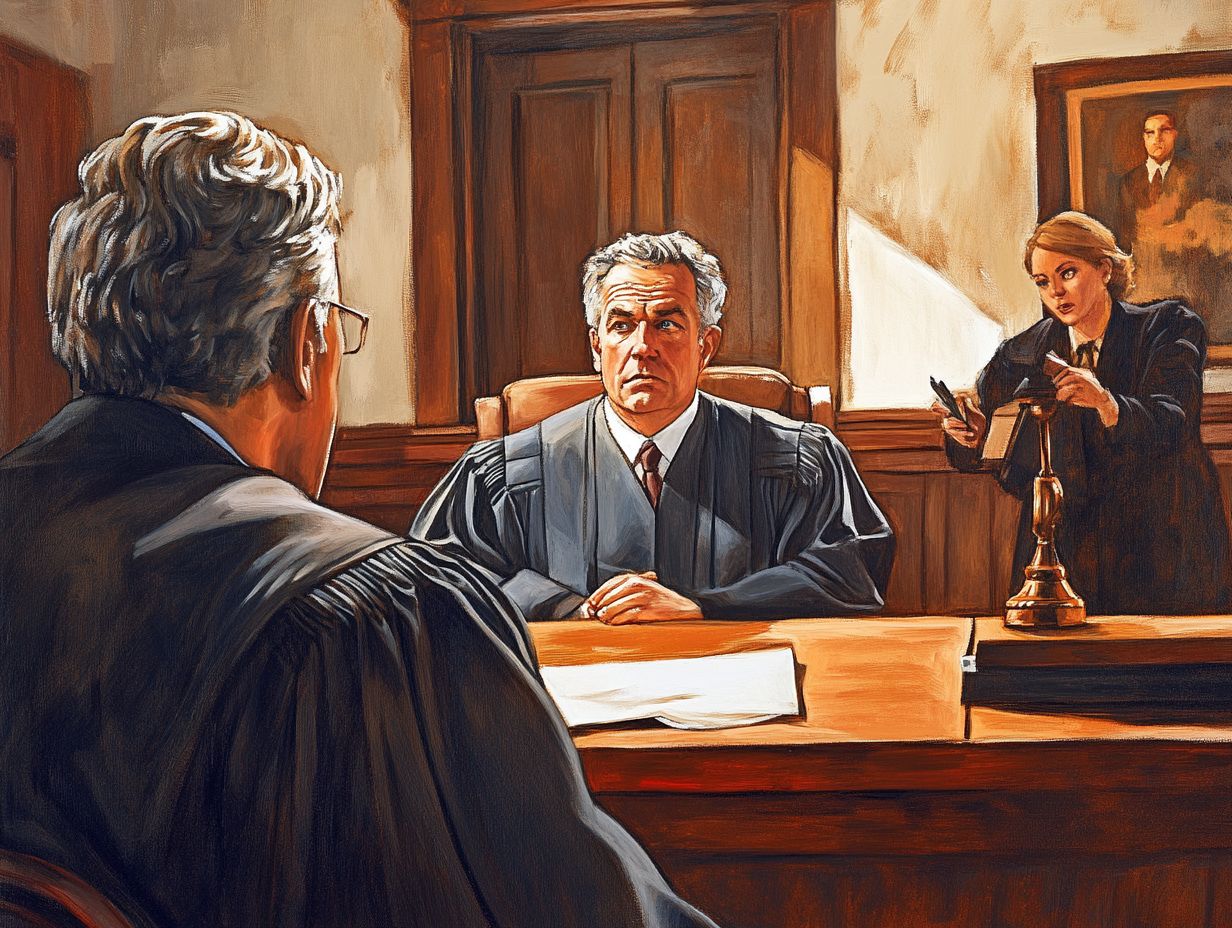
Civil penalties for copyright infringement can hit you hard financially. Criminal penalties could lead to fines and even imprisonment, depending on the severity of the violation.
The law allows copyright holders to pursue damages. These can escalate from statutory damages potentially thousands of dollars for each infringed work to actual damages based on lost profits.
Take, for instance, the case of Capitol Records, LLC v. Thomas-Rasset. This case illustrates how individuals may face both civil fines and, in severe cases, criminal charges for repeated offenses that can lead to jail time.
Under the law, copyright owners also possess the right to initiate lawsuits. They can seek damages and obtain injunctions that halt any further infringement, effectively safeguarding their intellectual property rights.
Impact on the Original Creator
The impact of copyright infringement on you, as the original creator, can be profound. You might experience a significant loss of income and damage to your reputation. This can hinder future opportunities for your creative projects.
Copyright protection is essential for safeguarding your intellectual property. It ensures that you receive fair compensation for your artistic or literary contributions. When your work is used without authorization, the damages awarded may reflect only the financial impact. However, the emotional and reputational toll can be far more significant.
Loss of Income and Reputation
Loss of income due to copyright infringement can threaten your income. Additionally, damage to your reputation may cast long shadows over your career.
This reality is particularly palpable in the music industry. Unauthorized use of artists’ songs can lead to significant financial setbacks. Consider the case of a popular band whose tracks were shared illegally online, resulting in a stark decline in their sales figures.
Authors, too, face an uphill battle when their books are pirated. This leads to lost royalties and reduced visibility for future projects.
In the realm of visual arts, photographers and illustrators often discover their creations reproduced without consent. This undermines their brand value and stifles future opportunities.
These scenarios highlight the urgent necessity for copyright protection. It is a vital safeguard that ensures your interests are upheld and that you receive fair compensation for your creativity and hard work.
Preventing Copyright Infringement
Preventing copyright infringement is essential for both creators and users alike. Educational institutions have a pivotal role in this endeavor. They offer resources designed to enlighten users about copyright laws and best practices for compliance.
By promoting awareness of copyright protection, universities such as UA Little Rock and Purdue University contribute to cultivating a culture that respects intellectual property rights. This ultimately reduces instances of unauthorized distribution.
Best Practices for Avoiding Infringement
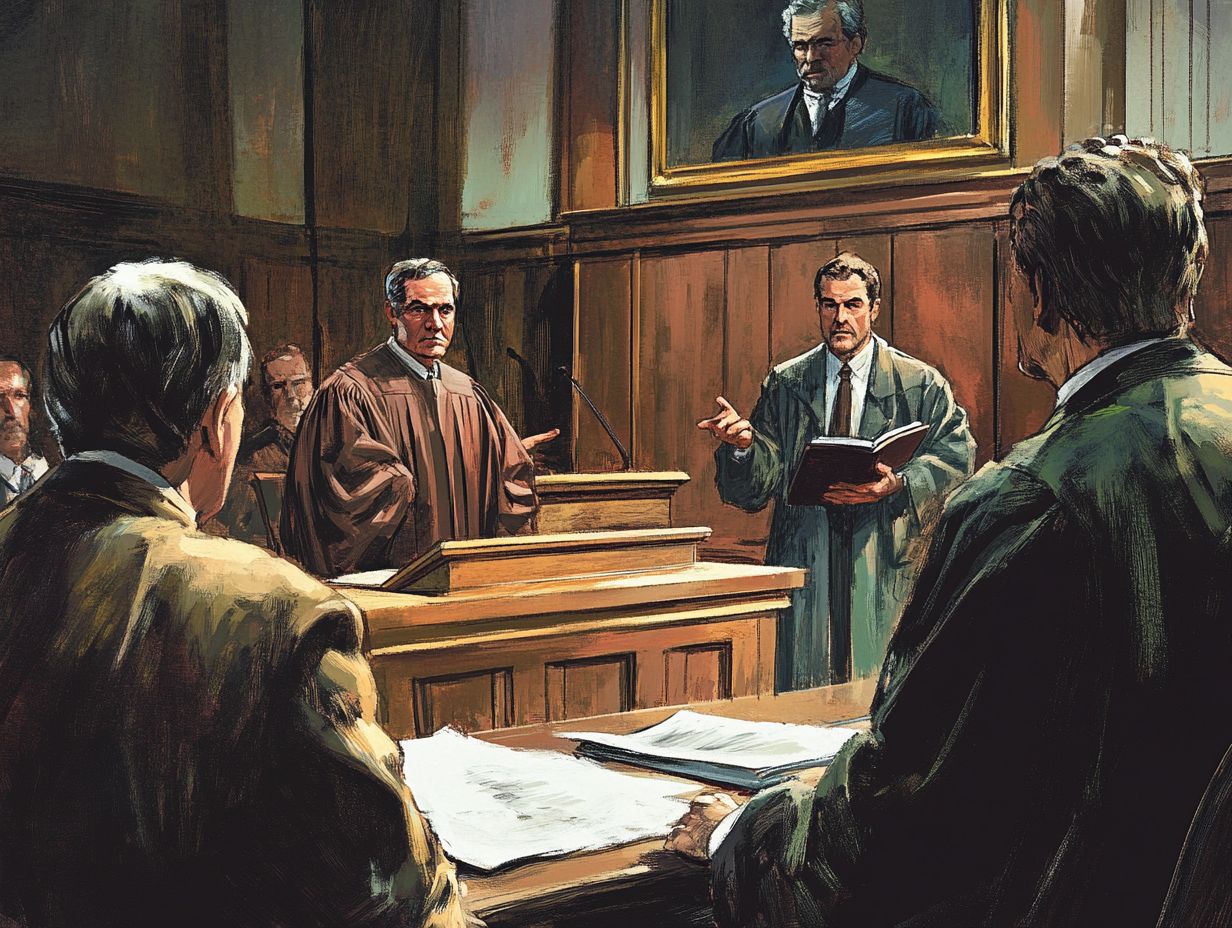
Implementing best practices to avoid copyright infringement requires you to educate users about the nuances of copyright protection. It is also important to explain the potential repercussions of unauthorized use of copyrighted materials.
This education should include clear guidance on proper attribution. Ensure that users understand the importance of crediting original creators and the various licensing agreements that govern content usage.
By promoting awareness of copyright-free resources, you enable individuals to access high-quality materials while respecting others’ rights. Educating users not only safeguards the interests of copyright owners but also gives the power to consumers to make informed choices.
Such practices cultivate a respectful creative environment where both artists and users can flourish. Ultimately, this benefits everyone involved in the creative economy.
What to Do if You’re Accused of Copyright Infringement
If you find yourself facing accusations of copyright infringement, it’s crucial to understand the steps you need to take and the legal options at your disposal.
These can vary greatly depending on the specifics of the claim and the legal authority involved. Whether you re dealing with civil actions or criminal offenses, having a well-defined plan in place can significantly help you mitigate potential repercussions.
Steps to Take and Legal Options
When faced with accusations of copyright infringement, it s essential to understand the immediate steps to take and the legal options available to navigate the situation effectively.
Begin by gathering all pertinent evidence related to the matter. This includes any documentation that could bolster your claim of fair use, which allows limited use of copyrighted material without permission, or other defenses.
Next, consider seeking legal counsel. A qualified attorney specializing in intellectual property law can be invaluable in guiding you through the complexities of copyright disputes.
Evaluating the validity of the claim is equally important. Ensure it has a sound foundation. Engage with the legal authority overseeing the case to gain clarity on the involved processes. They often have resources and information that can aid your defense.
By taking these necessary steps, you can respond to such allegations more effectively and protect your rights.
Frequently Asked Questions
What are the consequences of copyright infringement?
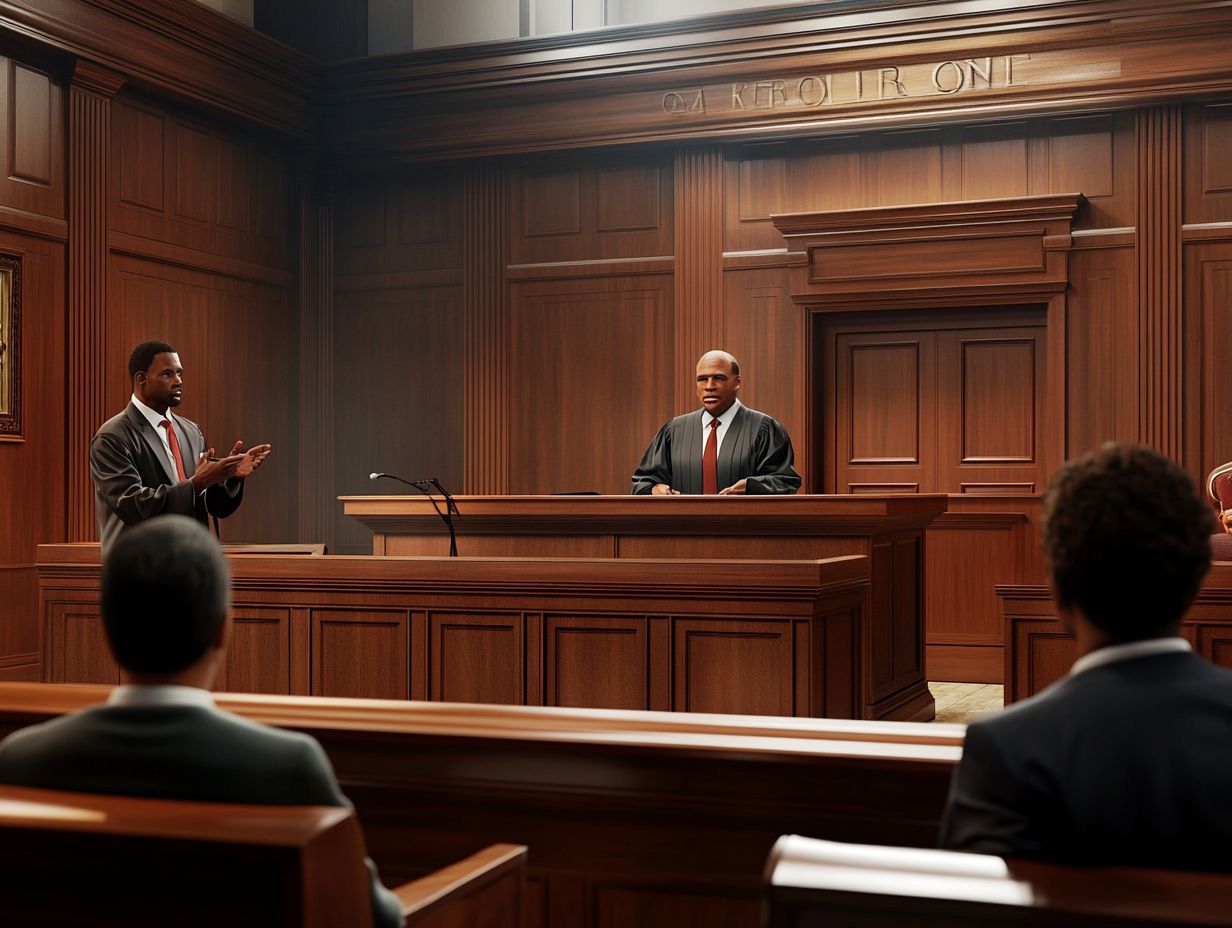
Copyright infringement can lead to legal action and fines. It may also harm the original creator financially.
Can copyright infringement lead to jail time?
In severe cases, yes. In some countries, copyright infringement is a criminal offense that can result in imprisonment, especially for repeat offenders.
Can I be sued for copyright infringement even if I didn’t make any money from it?
Yes, you can still be sued for copyright infringement even if you didn t profit. Courts may impose damages based on various factors, including legal fees.
What are some common examples of copyright infringement?
Common examples include using someone else’s music, images, or writing without permission. Distributing pirated movies or software also counts as infringement.
What can I do if someone has infringed on my copyright?
If someone uses your work without permission, act quickly! Send them a cease and desist letter to protect your rights. Consulting a copyright law expert is also a smart move.
How can I avoid copyright infringement?
Always use original or properly licensed content. If you need to use someone else’s work, get their permission and give credit where it’s due. Stay informed about copyright laws to remain compliant.

